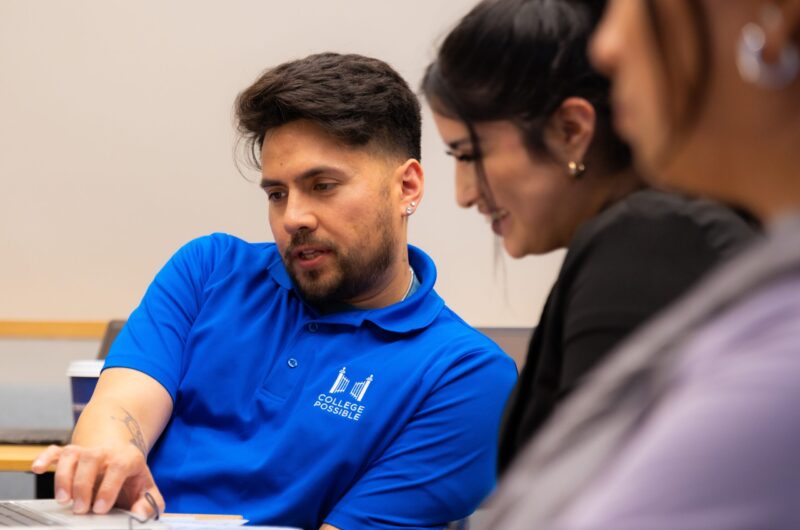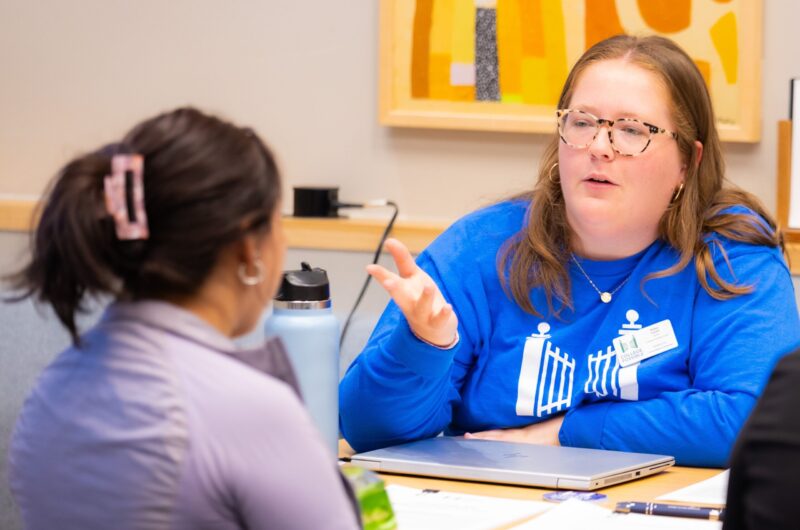Your journey through school has prepared you for college in many ways: you have found ways to manage your time, formed relationships, and taken classes to help create a solid foundation for the courses you will take in college. However, there are some critical differences between (most) high school experiences and (most) college experiences. We’ll highlight some of those differences below, along with some tips for adjusting to your new surroundings.
More in-depth focus on your area(s) of interest
You probably had to take a balanced course load in high school, including Art, Science, Math, English, etc. In college, the majority of your courses will focus on coursework related to your major. It is important to ensure the major you choose to pursue is aligned to your career goals! You will spend a lot of time in college learning necessary information that will be needed in your future career. In addition, your courses, department, and professors form a professional community centered around what you plan to study and will serve as a network to you in college and beyond.
Most two-year programs will require few if any, courses not related to your area of study. Most four-year programs still require a certain number of hours outside of your area of focus, but it is a far smaller percentage than in high school. If you are not sure what you want to major in just yet, taking these general requirements during your first year of school is a great start.
More independence
College is an exciting time where you will be treated as an adult and have autonomy over many decisions. Whether you live at home, in your place, or on-campus, your professors and campus staff will expect you to decide how you manage your time, sign up for classes and utilize available resources.
There will be many people at your college who will provide guidance and help, from your college advisor to your professors. Still, ultimately the responsibility of your studies will fall on you. College advisors can help with questions you have about required and recommended courses, but you are the one who will create your schedule and register for classes. Many college advisors will require you to make appointments with them after your first meeting. Your professors will provide clear guidelines and expectations regarding test dates, homework, and grading. They will not always remind you of upcoming quizzes, due dates, or requirements. These dates will be provided in the syllabus that you receive at the beginning of the year. Some professors will not even take attendance, especially in larger classes.
Many high school teachers work together to ensure that large assignments do not overlap with important campus events. This is not realistic on college campuses, so you’ll be responsible for checking overlapping assignments and deadlines accordingly.
Tips:
- Prioritize classes that you are required to take, either for your major or general credits, and schedule other classes around them
- Sign up for classes as early as possible each semester. Many students have the codes and login ready for the exact time classes open to register!
- Check your syllabi and track test and quiz dates to look for conflicts and make sure you are prepared.
- Let professors know about time conflicts as soon as possible. The earlier you share them, the more flexible most professors will be.
- It can be tempting to start skipping class, but it can snowball. Hold yourself accountable for attending every class whether or not attendance is “required.”
Less structured time
Many students are in class or on campus for eight to ten hours a day during high school. In college, full-time students will spend anywhere from twelve to twenty hours a week in class, only taking five to six courses at a time. Much of the work in college is done independently outside of class. This independent work is often a mix of practice, problem sets, and reading, depending on your major and classes. Many students study and work on assignments for around three hours outside of class for each hour that they are inside of class. You will get to decide when you work best: the morning, between classes, evenings, and weekends, but it will require self-discipline and a schedule. Many students use their extra time to work, join clubs, or attend campus events.
Tips: For tips on managing your time in college, check out our Time Management resource.
Fewer graded assignments
Almost all classes in college will have less graded work than in high school. Because of this, many assignments will require you to work on them over time and incorporate concepts and knowledge from a longer period than high school assignments. In addition, attendance and participation generally form a smaller percentage of grades in most college classrooms.
This approach’s benefit is that most students will have longer to work on mastering concepts or perfecting papers than they might in high school. Utilizing peers and office hours to work through challenging concepts or improve writing assignments is a common part of college learning.
Tips:
- Try to keep up with assignments and skills, even if you are not yet being tested on them.
- Join a study group or utilize the writing lab if they are available.
- Use Stress Management techniques if needed during busy study times or exams.
Opportunities for deeper learning and mentorship
College courses are taught by professors, graduate students, or industry professionals who are deeply passionate and knowledgeable about that area of study. Many students find mentors who teach them beyond just the content of their courses. Attending office hours, taking various classes from them when offered, and asking about research opportunities are great ways to connect with professors.
Professors will share their office hours and meeting policies during the first few days of class and in their syllabus. Some professors are more open than others to mentor and meet regularly with students based on their current research, availability, and several other factors.
Tips:
- Utilize office hours to discuss questions about class with professors, but also utilize this time to ask professors questions about their experience in the industry or more extensive questions about the area of study.
- If you have had a positive experience with a professor, you can reach out to them about opportunities or advice regarding careers, internships, or other opportunities. Make these requests short and include a compliment or two!
- Many professors can be inspiring in expressing themselves or expressing their passions, even if their area of study is separate from yours. Take note of these attributes and attend these office hours as well.
Diversity
College campuses tend to be more diverse than high school campuses in many ways. Many colleges will have professors and students from different states and countries working and studying together. In addition, college campuses often have students of various ages studying in the same department and even the same class. This diverse community of learners provides one of the best opportunities for growth and learning on campus.
Tips:
- Seek out friendships and study groups with students from different backgrounds than your own. You can learn and share a lot!
- Many student groups will have cultural events, clubs, and activities. Attending some of these events can be great learning experiences.
Every high school and college experience is different, but college requires some changes to routines and new skill-building for almost every student. College is an exciting opportunity to meet new people and grow both personally and academically.



